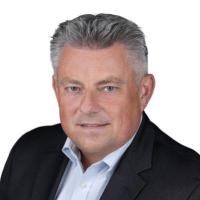SystemX Affiliates: login to view related content.

*To receive email announcements and live stream information for upcoming seminars, please subscribe to the SystemX Seminar/EE310 Mailing list here.
In modern electronic systems, analog circuits are primarily used to condition and discretize physical signals, while most of the information processing occurs in the digital domain. The digital abstraction has allowed us to focus on bits as atomic carriers of information, largely ignore analog nuances in the underlying physical signals, and hence scale hierarchical systems toward transistor counts of over 100 billion on a single chip. While this approach has been a key enabler for managing complexity, it has always been scrutinized for its potential inefficiencies. Why don’t we prefer to perform an addition by simply connecting two wires carrying analog currents? Similarly, why not compute an integral by collecting charges on a capacitor? This talk will provide some answers to these questions, with a focus on domain-specific computing systems.
Boris Murmann is a Professor of Electrical Engineering at Stanford University. He joined Stanford in 2004 after completing his Ph.D. degree in electrical engineering at the University of California, Berkeley in 2003. From 1994 to 1997, he was with Neutron Microelectronics, Germany, where he developed low-power and smart-power ASICs. Since 2004, he has worked as a consultant with numerous Silicon Valley companies. Dr. Murmann’s research interests are in mixed-signal integrated circuit design, including sensor interfaces, data conversion, high-speed communication, and embedded machine learning. He was a co-recipient of the Best Student Paper Award at the 2008 and 2021 VLSI Circuits Symposia, as well as a recipient of the Best Invited Paper Award at the 2008 IEEE Custom Integrated Circuits Conference (CICC). He received the 2009 Agilent Early Career Professor Award, the 2012 Friedrich Wilhelm Bessel Research Award by the Humboldt Foundation, and the 2021 SIA-SRC University Researcher Award for lifetime research contributions to the U.S. semiconductor industry. He has served as an Associate Editor of the IEEE Journal of Solid-State Circuits, an AdCom member and Distinguished Lecturer of the IEEE Solid-State Circuits Society (SSCS), the Data Converter Subcommittee Chair and Technical Program Chair of the IEEE International Solid-State Circuits Conference (ISSCC), Technical Program Co-Chair of the tinyML Research Symposium, as well as General Co-Chair of the 2023 IEEE International Symposium on Circuits and Systems (ISCAS). He is currently chairing the IEEE SSCS Technical Committee on the Open-Source Ecosystem. He is a Fellow of the IEEE.


